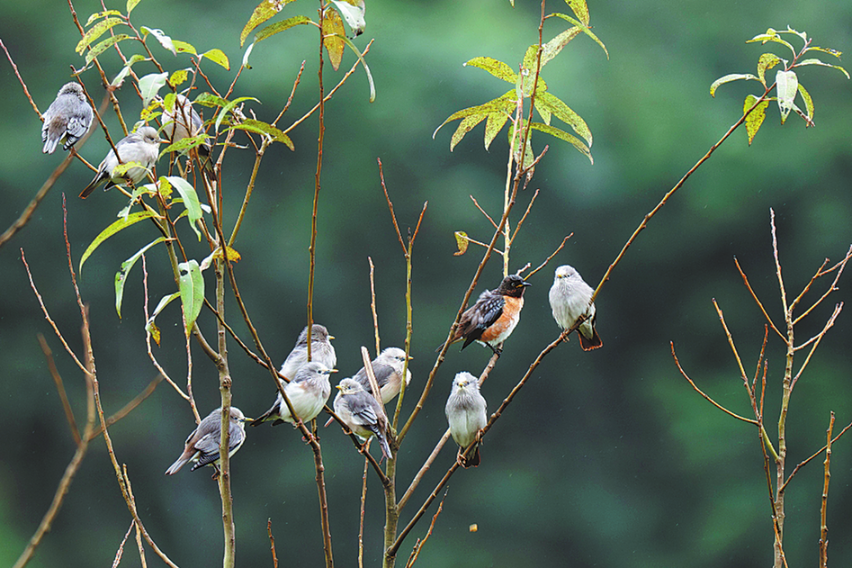South Africa's lifting of rhino horn ban not great news

Last week, the high court of South Africa lifted a nationwide ban on the trade of rhinoceros horn. The ban had been in effect since 2009 and ran in harmony with a worldwide ban on the horn trade that has been enforced by the United Nations for years.
Lifting of the ban is a big victory for rhino ranchers, who own about a third of South Africa's estimated 20,000 rhinos - which constitute 80 percent of the planet's remaining population. Now, the ranchers contend, they can harvest horn (unlike elephant ivory, rhino horn can be removed and, like hair or fingernails, will grow back) and sell it to pay for the expensive upkeep, care and feeding of the captive beasts.
But if the trade remains illegal outside of South Africa, is there really enough of a market within the country to make it a profitable endeavor? The horn's main demand is for traditional medicine in Asia.

"Why would people in South Africa buy the horn?" environmental consultant Fiona Gordon told China Daily. "We all know the real end consumers tend not to reside in South Africa. I have not seen any decent market research from the pro-traders or government on the domestic demand for rhino horn in South Africa, have you? Perhaps I have missed something?"
Economist Alejandro Nadal, a professor at the College of Mexico who follows wildlife issues, calls the lifting of the ban "bad news for conservation".
"The distinction between 'domestic' and 'international' markets is largely artificial," he said, adding that there are good reasons to conclude the two markets are "closely intertwined". Deregulation in South Africa, therefore, should have significant ripple effects on domestic markets elsewhere (presumably South East Asia), he said.
"Let's hope we remain at the level of 'ripples' and this does not escalate to tsunamis!" he said.
"There hardly exists a domestic market for rhino horn in South Africa," South African businessman Dex Kotze, founder of Youth 4 African Wildlife, said in an email to China Daily. "It is no secret that South Africa's government wants to trade in rhino horn and has recently made draft regulations for domestic trade public for comments."
But, Kotze said the regulations are "overburdened with loopholes that pave the way for a parallel illegal market to thrive".
He cited a recent study that found a maximum of 3.5 tons of rhino horn could be "harvested" from ranches a year.
With "the exponential growth of wealth in consuming countries such as China, Vietnam, Thailand and possibly reawakening dormant user markets," he said, "demand could reach in excess of 370 tons a year!"
Kotze said it is vital to note that a huge percentage of private rhino owners in South Africa do not actually support the trade. But those that do, stand to make a bundle.
Conservationist J.A. Mills, author of Blood of the Tiger, said the only way to save wild rhinos is to stop stimulating demand, which legally selling ranched horns does. "The wild ones are considered more valuable, effective and/or prestigious, so those who can afford the best buy the wild ones," she said.
"These guys who are ranching rhinos in South Africa are rich already and stand to make millions if not billions from this trade. So they would get filthy rich, while places like South Africa stand to lose the tourist draw of wild rhinos, and the world risks losing one of its rarest wild species," she said.
"If China and Vietnam do what China did on ivory, the market will dry up, prices will fall and rhinos will be able to survive and thrive in the wild," Mills added.
Kotze spells it out bluntly. "South Africa's proposal to trade in horn will certainly pave the way for extinction of rhinos in the wilderness," he said. "Fraud, corruption, poor legislation, poor application and delays of justice systems and an ever-increasing African population over the next 80 years will surely create insurmountable conduits for criminals to exploit the situation."
He noted that Africa's population of 1.2 billion will reach 2.4 billion by 2050 and 4.2 billion by 2100.
"Any trade in rhino horn will not protect this 40 million-year-old species from the greed of mankind," he said.
Contact the writer at chrisdavis@chinadailyusa.com.
(China Daily USA 04/19/2017 page2)
Today's Top News
- House committee's report not conducive to steadying Sino-US economic and trade ties: China Daily editorial
- Unified national market resilience reinforcer: China Daily editorial
- Huge potential seen in China-Northern Ireland trade and investment cooperation
- Xi encourages young sinologists to bridge China, the world
- Xi, president of Comoros exchange congratulations on 50th anniversary of ties
- Luxury leasing market gains traction in HK






























